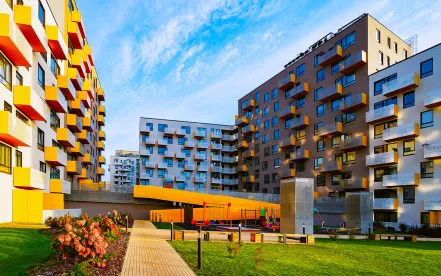On December 17, 2021, the Los Angeles Superior Court issued a victory to the City of Los Angeles (the City) when it struck down a challenge to the City’s Exposition Corridor Transit Neighborhood Plan (Expo Plan) brought by Fix the City, a Los Angeles-based advocacy group. The Expo Plan decision provides a snapshot of statewide trends and tensions in promoting housing density and transit-oriented development, but implements those efforts in one of California’s most high-stakes areas: the west side of Los Angeles.
Expo Plan Approved in 2018 to Combat Housing Affordability Crisis
The Los Angeles City Council unanimously approved the Expo Plan in July 2018, by adopting the relevant zone change ordinance and related Community Plan and General Plan amendments. The Expo Plan aims to combat the City’s affordability crisis and create “complete neighborhoods” focused around transit. Specifically, the Plan allows for greater density within a half-mile radius of the Bundy, Sepulveda, Westwood, Palms, and Culver City stations of the Metro light rail Expo Line on the Westside of Los Angeles. The Plan permits taller, mixed-use buildings on major streets; incentivizes affordable housing; allows for housing and offices in areas previously reserved for industrial uses; and permits apartments in the single-family home district southeast of Bundy Station. The Plan seeks to reduce costs for housing developers by no longer mandating that the number of required parking spaces be based on the number of housing units in most new developments. Overall, up to 6,000 new apartment and condominium units and 14,000 new jobs are envisioned for the area.
Opponents of the Plan Seek to Overturn It
“Fix the City” brought suit against the City in October 2018 seeking to overturn approval of the Expo Plan’s zoning changes. They argued in part that the new zoning under the Expo Plan was impermissibly inconsistent with the policies of the Los Angeles General Plan and the West Los Angeles Community Plan. Fix the City additionally argued that the findings for adopting the Expo Plan were not adequately supported by the record and that emergency service response times would be harmed by the increased density under the Expo Plan, and the resulting increase in traffic.
The City responded that neither of the Plans mandated such infrastructure findings prior to adopting a zone change ordinance because implementation of the goals of the General Plan is an exercise of discretion by the City. The City found in adopting the zoning ordinance that increases in residential density do not automatically result in greater demand for infrastructure and that such demands would not necessarily produce a significant increase in requests for emergency services.
Los Angeles Superior Court Judge Mary Strobel issued a decision on December 17, 2021, upholding the adoption of the Expo Plan zoning ordinance. The trial court found that the General Plan and Community Plan’s instructions regarding findings of adequate infrastructure were persuasive, but not mandatory. The court also held that the record that the City adopted in order to approve the Expo Plan’s zoning ordinance was sufficient in part because the City had found that the Expo Plan would improve Vehicle Miles Traveled relative to the “no project” alternative, meaning that the zoning changes were neither arbitrary nor capricious. Further, regarding the policies of the General Plan that the Expo Plan actually advances, the court held that the City has the authority to balance competing General Plan policies when making land use decisions.
“Fix the City” appealed this decision on the Expo Line on February 2, 2022. The organization previously succeeded in 2013, in overturning Hollywood’s Community Plan, which would have provided for taller buildings and greater neighborhood density in that neighborhood.
Developers Take Advantage of Possibilities Presented by the Plan
The Expo Plan went into effect November 2019 and developers have begun pursuing projects that take advantage of the new possibilities permitted by the Expo Plan. One applicant has, for instance, submitted a project that would replace 16 single-family homes just south of the Bundy station with two apartment buildings containing 455 residential units, 52 which would be reserved for lower-income households.



 />i
/>i
